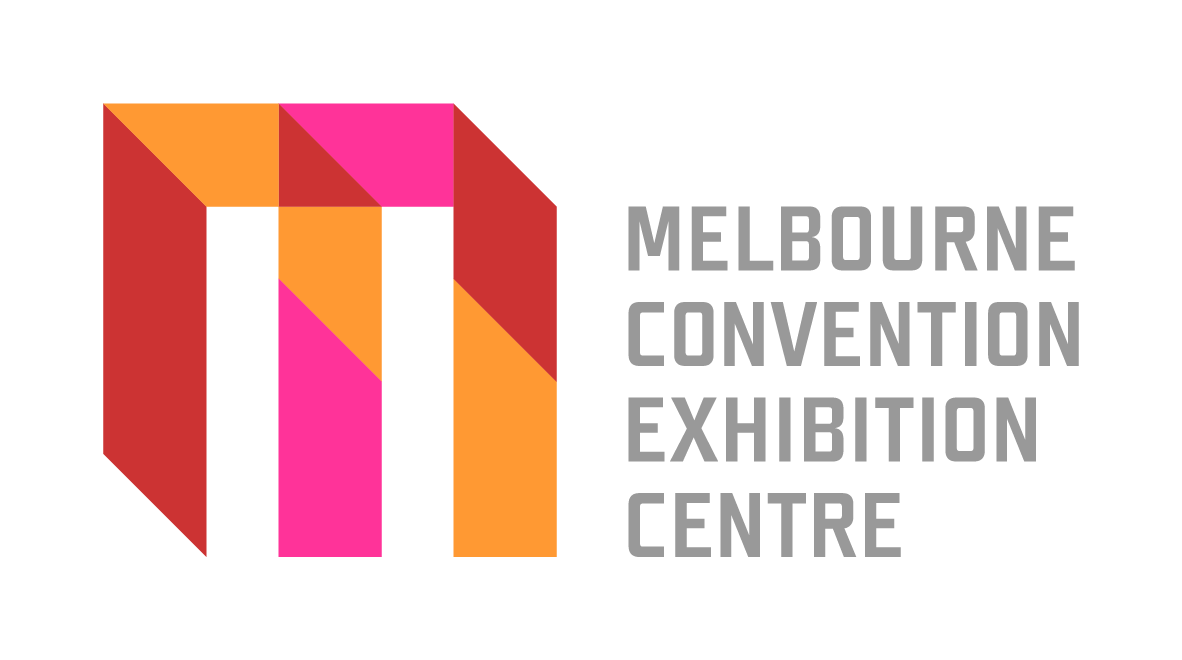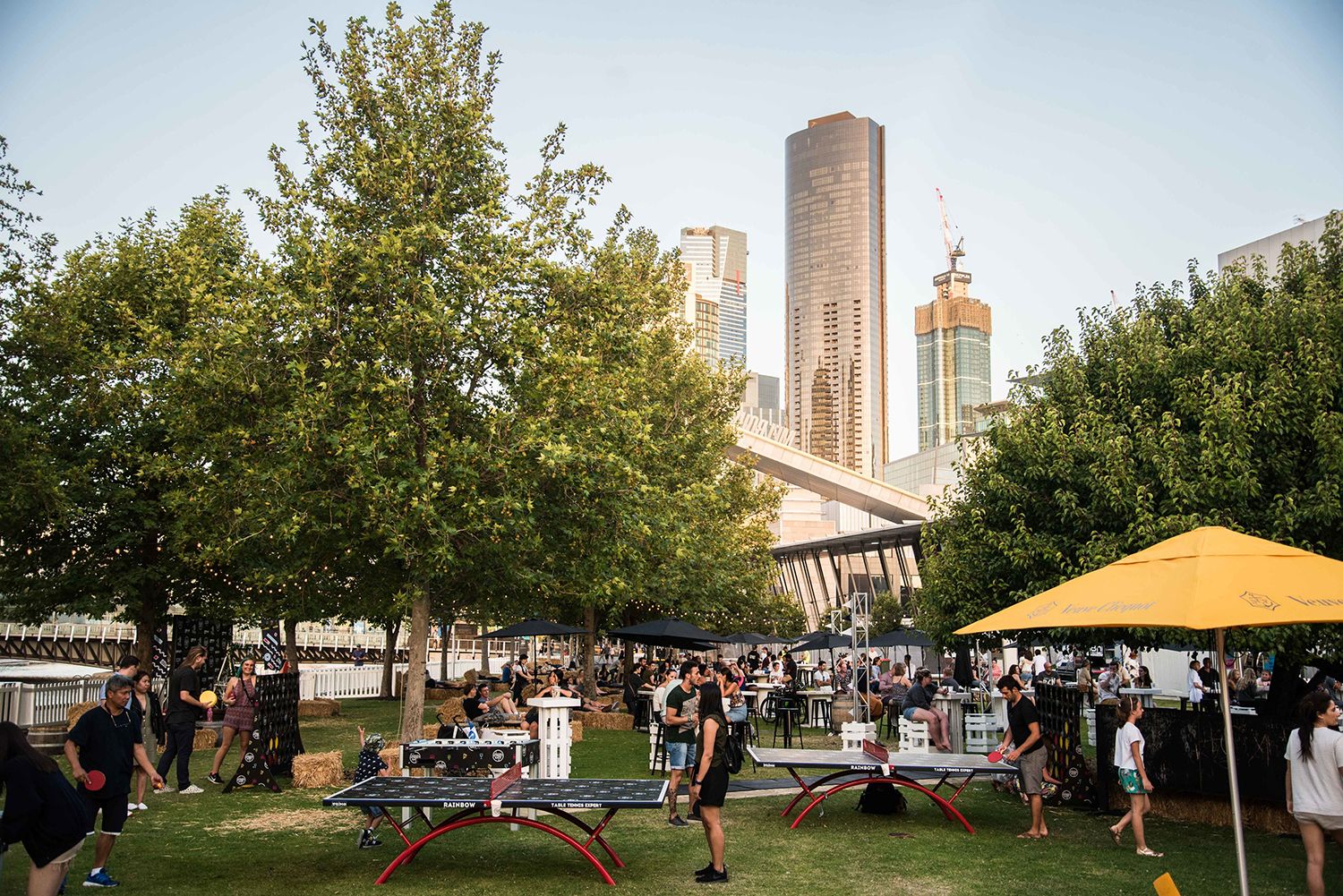Being sustainable isn’t just a trend anymore – it is now an essential part of being, that will forever be a major influence in the way we live our personal and professional lives. At DAIMANI we specialise in an industry that has so much potential to become greener and have noticed a movement in consumer demand requesting event experiences with a more eco-friendly footprint. It is hugely important that we continue to further our knowledge and improve our understanding of the key issues at hand.
We are looking to learn from some of the industry’s leaders and innovators and have decided to use The DAIMANI Journal as a platform to promote, educate and celebrate all the people, organisations and fantastic initiatives that are proactively building towards a greener future in the event industry.
We start by speaking to the very experienced team at the Melbourne Convention and Exhibition Centre. Previously put on the sporting map for hosting the Boxing, Badminton and Weightlifting in the 2006 Melbourne Commonwealth Games. This event was heralded as one of the first carbon neutral major sporting events of its time, planting over 1 million trees, introducing new benchmarks for litter and waste management, increasing the use of public transport and building awareness of key environmental issues.
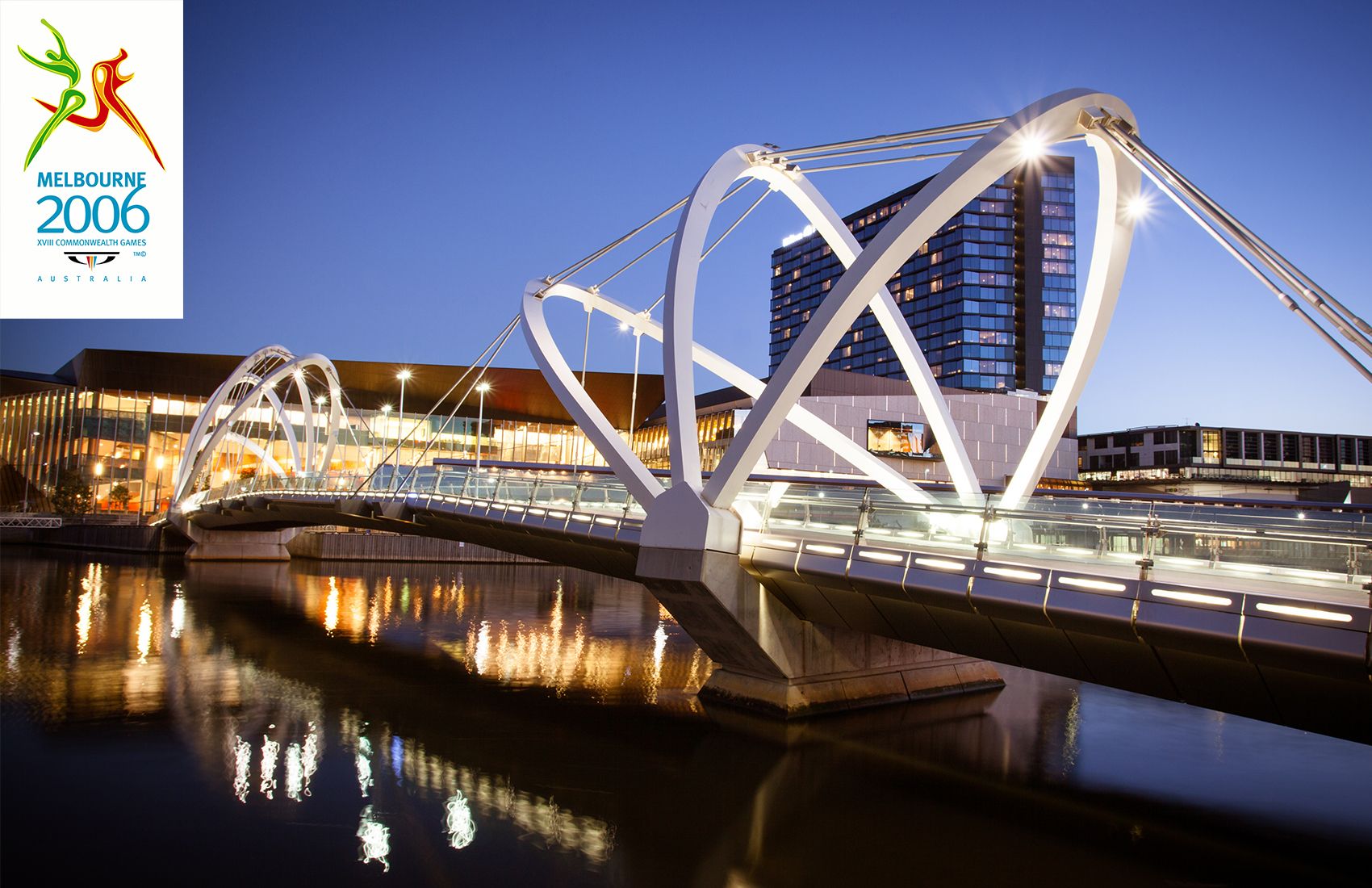
The team at the MCEC have continued the legacy and built upon the strong reputation Melbourne has as a sustainable city. Renowned for their incredible range of spaces, innovative design and jaw-dropping food, The MCEC ‘normally’ host over 1000 events each year. They have been breaking down the barriers of sustainability for the last 10 years and are the first convention centre in the world to be given a 6-star green environmental rating.
Leighton Wood (Chief Operational Officer) has been the organisation’s sustainability advocate for many years. He promotes the idea that “nothing significant can be achieved in the sustainability space without collaboration, be it with customers, suppliers, employees or governments”. We look at how this message has been reinforced by The MCEC’s key initiatives. One of the integral members of the team implementing these, is Sam Ferrier.
Sam is The MCEC’s Sustainability Manager and is responsible for reducing the environmental footprint of the building, operations and the events they host.
What made you choose this sector of the industry to work in?
I chose to work in this industry because I have always been passionate about our natural environment and reducing our negative impact while restoring it for future generations. I’m excited by the opportunities and challenges posed by the events industry, as well as its willingness to drive significant change.
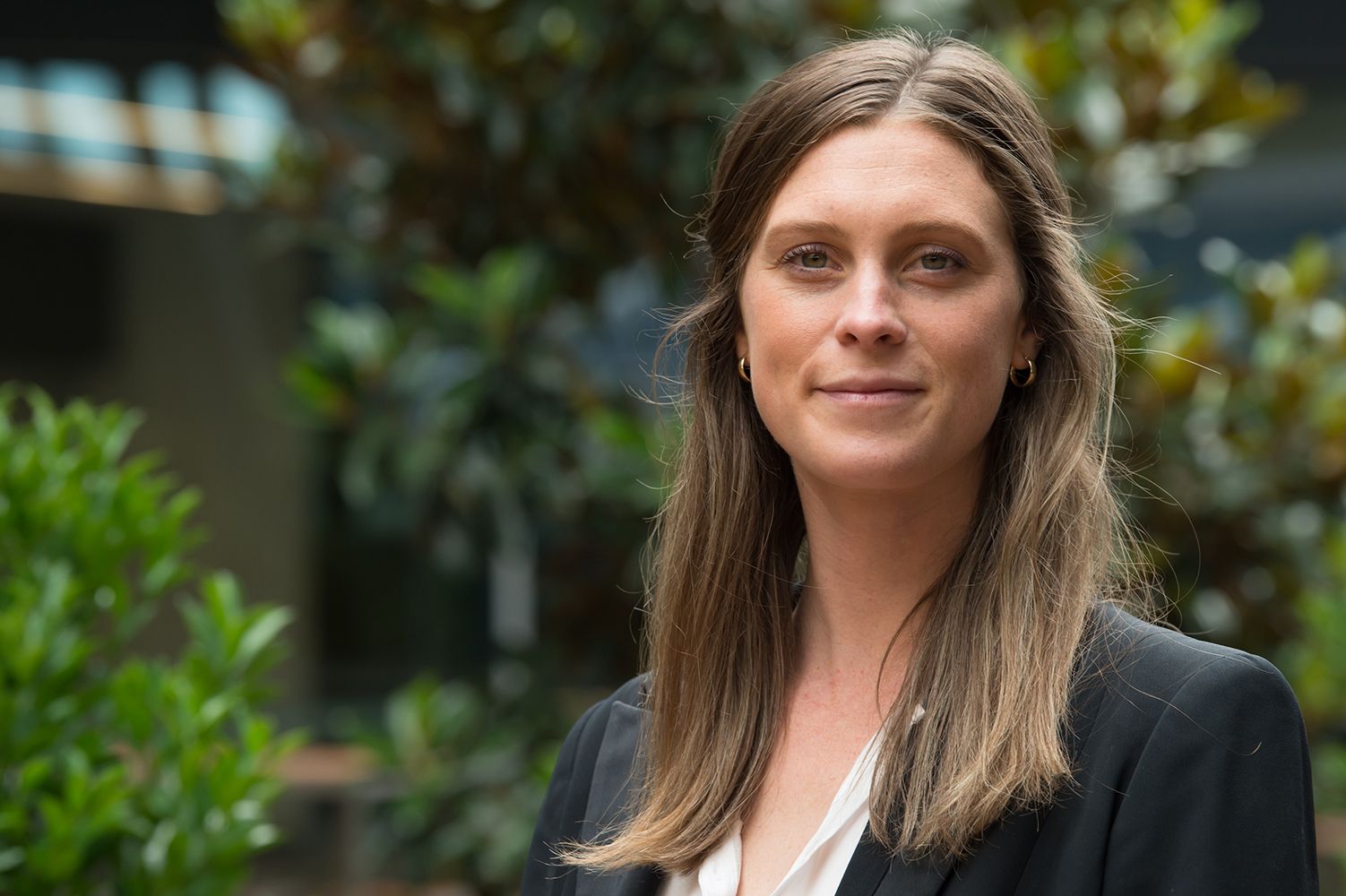
Why should we make our events more sustainable?
Events have the potential to cause significant environmental harm and excessive consumption. The true cost of an event is often invisible – the emissions as a result of attendee travel, the mountains of landfill waste that get trucked off site, the carefully prepared food that made it to the bin before the plate. We all attend events for great reasons, so the opportunity lies in empowering venues, organisers, suppliers and attendees to take action towards creating a positive legacy rather than a damaging one.
How do you communicate the importance of event sustainability to internal stakeholders?
The MCEC is a standout in the industry, with a team of passionate people and a genuine commitment to reducing the impact of what we do on the environment. My very role is an example of this! But we also have a really engaged workforce, who collaborate through internal working committees to support initiatives and help get the message out there.
What are some of your key initiatives that you have implemented to make your events more sustainable?
We divert waste from landfill by sorting it into 17 different waste streams. We don’t provide plastic straws and have eliminated plastic water bottles from catering. Leftover food that can be rescued is donated to OzHarvest who redistribute the food to those in need. Food scraps from the kitchen are sent to our onsite organics dehydrator which processes the food waste and ends up being turned into energy. We have reduced the amount of energy we consume by replacing light fittings with LED, and installing an energy management system, complete with CO2 monitoring and variable speed drives. The building is also designed with sustainability at its forefront, so that it maximises natural light, uses solar capture for the heating of water, harvests rainwater from the roof and incorporates building materials with a low environmental footprint. Appointing a Sustainability Manager has meant that clients can work directly with us to tailor their event in order to make it more sustainable.
How do you look to promote, share and educate your sustainability practices to your event attending customers?
Our event organisers have access to our in-house expertise, with our own sustainability manager. This in turn allows the organiser to communicate with their guests about the practices they are supporting at MCEC. For those attending events, we also ensure our practices are visible, by clearly communicating our shift from single use items at the food and drink stations, in the café and all around the venue.
In becoming a sustainable event should the industry be looking to prioritise Social, Environmental or Economical factors?
A sustainable event or venue should be looking to prioritise all three pillars – social, environmental and economical. A good way to do that is to be guided by the United Nations Sustainable Development Goals (SDGs). The SDG’s are a clear set of 17 goals that we must reach globally by 2030. They range from addressing poverty to gender equality to responsible consumption and production.
MCEC’s sustainability efforts are not just environmental; we have a range of community partnerships designed to support social impact, with a focus on homelessness, health and youth. Our relationship with OzHarvest sees food waste reduced and supports the organisation in feeding those in need; we have a long standing partnership with Launch Housing, who are committed to ending homelessness and whom we support through working programs; and we support some of the largest fundraisers for sick children in the country, through hosting events for the Good Friday Appeal, Starlight Foundation and Variety.
I think we can really scrutinise this notion of sustainability though. Should we be trying to sustain what we are doing to the planet? I would argue a better approach would be to try to repair, protect and regenerate it. Sustainability is more than getting rid of plastic straws, catching public transport and recycling. It’s about redesigning our economy to one that is circular and regenerative by design. The circular economy has gained a lot of momentum in recent years and it will be interesting to see how the events industry adopts it.
What event/venue/club do you think is leading the way in the in the sustainability category?
There are some great international examples like Vancouver Convention Centreand Oregon Convention Centre that have really strong sustainability initiatives. Many events now are going carbon neutral (like Garden Beats Festivalin Singapore) and zero waste. But of course we have some leading venues and events here in Australia including Melbourne Fashion Week, International Convention Centre Sydney and the Sydney Opera House.
Is there a simple way in which you can quantify how sustainable your event is?
MCEC, along with other industry participants, are working with the Exhibition and Event Association of Australia (EEAA) to create an industry benchmark tool for measurement of an event's environmental footprint. It’s a simple tool to enable organisers to estimate the carbon footprint of their event, identify reduction opportunities and estimate the price of offsets.
What new innovations are coming through that can assist in improving the sustainability of your event?
In response to the COVID-19 pandemic and its impact on our industry, MCEC has developed a virtual event offering. Attendee travel is usually the biggest contributor to an event’s carbon footprint, so by eliminating or reducing the need to travel (especially by air), we dramatically influence our impact. I don’t expect virtual events will replace our desire to gather in person, however it has certainly made us question whether we need to physically attend events and meetings all over the country.
Large venues and gatherings produce thousands of tonnes of rubbish and waste each year – how do you look to reduce this amount at your event / dispose of it sustainably?
Waste produced as a result of events pose a real challenge for venues. We tackle this using a multi-pronged approach. First, we try and avoid distributing items that are going to end up as waste, especially single-use plastic. Many event organisers request for no single-use plastic to be served during their event and this has a huge impact on the amount of landfill generated. Using reusable and washable items like glass and crockery is prioritised where possible. Where waste cannot be avoided or reduced, we try to ensure that it can be recycled, recovered or composted using one of our 17 different waste streams. We also work with food suppliers to have them eliminate unnecessary packaging for items such as fruit and vegetables. There’s plenty of room for improvement, and our next big challenge is working with exhibitors to help reduce the waste footprint of the exhibition industry.
You mentioned you work with specific food suppliers in an aim to reduce packaging waste. Where do you source your food and are you able to utilise local suppliers?
We’re committed to sourcing our produce from local, passionate and ethical suppliers. This is not only to promote the wonderful producers we have in our region but also to reduce our venue’s environmental footprint. One of our most popular options featured in our Conference and Gala menu is the 100 mile market garden menu which sources all major ingredients from local farms and markets within a 100 mile radius of the venue. Our coffee beans are sourced from a Melbourne-based roaster (The Sustainable Coffee Company) and the first Australian coffee company to be 100% carbon offset from tree to cup. Recently we partnered with local company Biofilta to install 36 permanent food cubes in our courtyard. They are made from recycled material and are used to grow herbs and other food for our Goldfields Café & Bar.
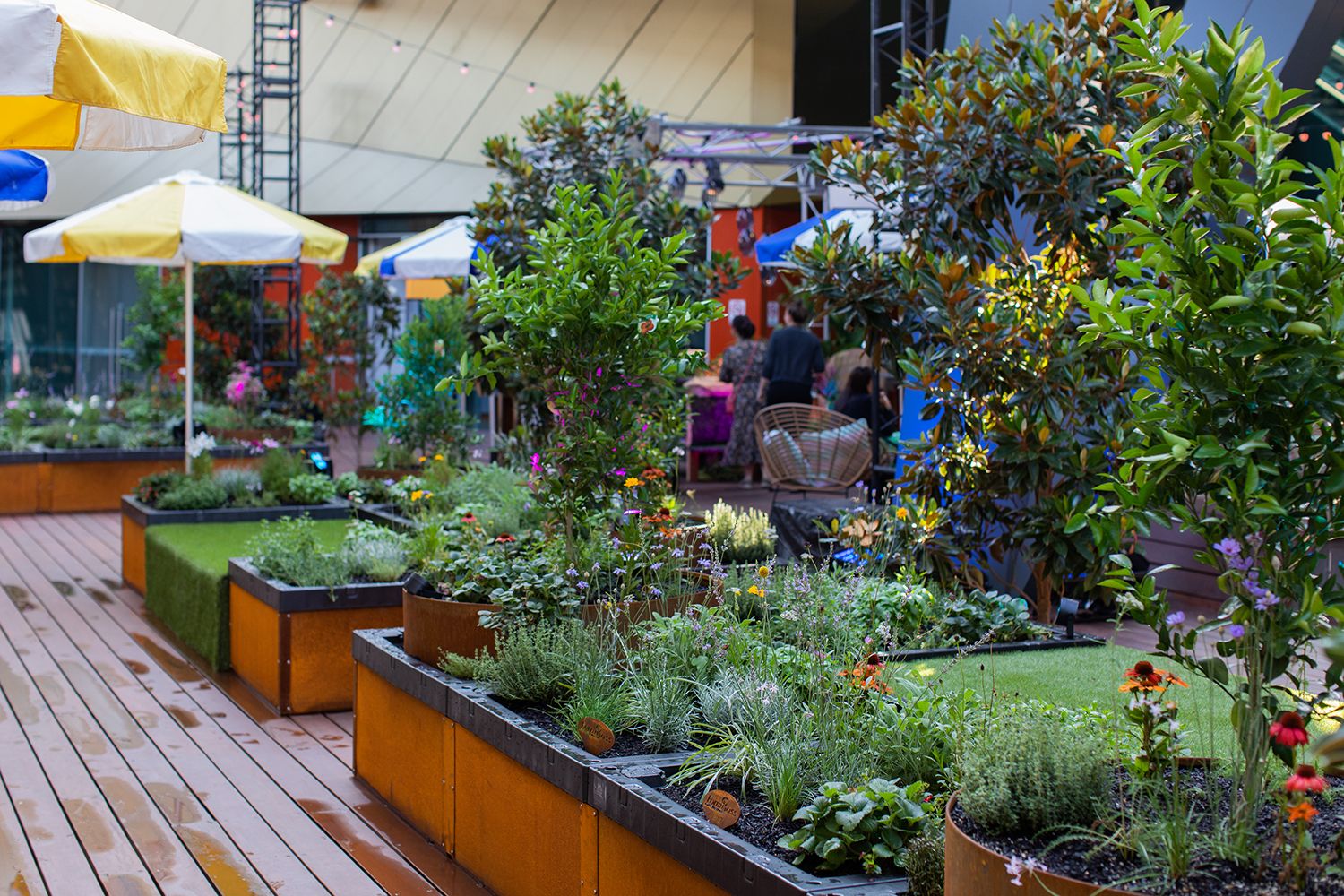
In a world of diverse eating habits and tastes, do you look to promote your vegan and vegetarian options?
Absolutely. We offer plant-based and vegetarian menu options (which are becoming increasingly popular) and they’re delicious! We can also customise a purely plant-based menu for a client. Years back when working for a corporate catering company, it used to baffle me when the special dietary meals featured limp salads and rice crackers with bland toppings, prepared as an after-thought. But vegetables are delicious in their own right and should be celebrated as the star of the dish. Why call it a vegan curry when it would be much more enticing to order braised lentils with grilled king brown mushrooms and roasted root vegetables?
How have you changed food service styles to reduce the amount waste at the end of an event?
We introduced staffed “We’ll Take Care of That” stations to help guests sort the components of their lunch hampers or plate scrapings into the right bins, therefore significantly preventing contamination.
Major event venues and stadia are renowned for consuming vast amounts of energy through lighting, air-conditioning and many other energy-intensive demands. Are you able to integrate the use of renewable energies in the running of your events?
In 2018 MCEC joined 13 other reputable Melbourne organisations to support the development of a wind farm in regional Victoria - The Melbourne Renewable Energy Project (MREP1). This initiative, called a Power Purchase Agreement (PPA), has enabled us to offset approximately 15% of the venue's total electricity consumption with renewable energy certificates. We are now looking at how we can increase the amount of renewable energy we generate onsite and procure more from off-site wind or solar farms.
How do you reduce energy consumption at The MCEC?
We commissioned an Energy Management System in the Exhibition Centre which has been responsible for a 30% energy reduction on 2016 levels. The replacement of 660 LED bay lights in the Exhibition Centre building reduced energy costs by $30k p.a. and carbon emissions for that building by 7%. We replaced three chillers in the Exhibition Centre with chillers that don’t use the ozone depleting R12 refrigerant, and as such are around 6% more energy efficient. We also introduced a 'turn off the lights' protocol which saw lights automatically turned off 30 minutes after the start of a tour from the Sales team. Contractors are now asked to stipulate specific bays and periods they need lit.
Dialling back to the start of the conversation with Leighton, he mentioned how important it was to bring a collaborative approach in the push for a greener future. How might we look to push event sustainability to the forefront of events rather than it being an afterthought or a tick box?
Sustainability needs to be a consideration from the conception of the event and its planning process. Once the guests arrive, menus are set and rubbish has been tossed, it’s too late. Organisers, venues and suppliers need to allow significant lead time and work together to decide what their sustainability priorities are and how they might be achieved. Organisers can choose venues and recommend accommodation based on their environmental practices and offerings. If you want your attendees to bring their own reusable water bottles and coffee cups, use public transport to get to your event, or carbon offset their ticket, this has to be effectively communicated well in advance of the event. Knowing what waste streams a venue can recover will help determine what products you use at your event. The push for a sustainable event may be driven by one very passionate person, however for sustainability to be embedded in every decision, it needs to be embraced by everyone responsible in the event process, from directors to cleaners. Communicating and prioritising this value from the outset can boost a sustainable culture or event outcome.
With a substantial list of creative initiatives and activations, there are many transferable ideas that can be implemented across the event industry. We believe there are two valuable messages that ought to be highlighted in The MCEC and Sam’s insightful answers:
1. The whole is greater than the sum of all parts. The emphasis put on the importance of educating and integrating all stakeholders in the fulfilment of a unified goal has proven hugely effective.
2. Not settling for just being ‘sustainable’. The mindset to go beyond and regenerate our environment. There’s an overwhelming feeling in which the accolades and awards are added bonuses, but the real target is to greatly improve the wellbeing of their community, customers and environmental footprint.
Thank you to both Sam Ferrier and Leighton Wood for their contributions to the article and their continuous push towards a more sustainable future for the event industry.
